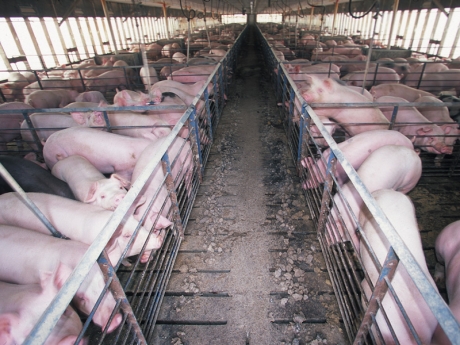Food production from animals plays a crucial role in meeting the dietary needs of people around the world. It provides a source of protein, essential nutrients, and contributes to the economy of many nations. In this article, we will explore the various aspects of food production from animals and its significance in the global food supply chain.
Types of Animal-Derived Foods
Animal-derived foods are classified into several categories, including:
| Category | Examples |
|---|---|
| Meat | Beef, pork, poultry, lamb |
| Dairy | Milk, cheese, yogurt, butter |
| Eggs | Chicken eggs, duck eggs |
| Honey | Pure, natural honey |
These animal-derived foods are rich in protein, vitamins, and minerals, making them an essential part of a balanced diet.
Sustainable Animal Farming
Sustainable animal farming practices are crucial for ensuring the long-term availability of animal-derived foods. This includes ethical treatment of animals, responsible use of resources, and minimizing environmental impact.
Efforts such as pasture-based farming, rotational grazing, and nutrient management help to improve the sustainability of animal farming while maintaining the welfare of the animals and the ecosystem.
Challenges in Animal Food Production
Despite its importance, food production from animals faces a range of challenges, including:
- Environmental impact of large-scale farming
- Animal welfare concerns
- Disease management
- Resource constraints
Addressing these challenges requires innovative solutions and a collaborative effort from farmers, researchers, and policymakers.

Credit: foodsystemprimer.org
The Role of Technology in Animal Farming
Advancements in technology have revolutionized animal farming practices. From precision agriculture to genetic engineering, technology plays a vital role in increasing the efficiency and sustainability of food production from animals.
For example, the use of data analytics and sensors helps farmers monitor the health and behavior of their animals, ensuring early detection of diseases and improving overall farm management.
Global Impact of Animal Food Production
Food production from animals has a significant global impact, influencing the economy, trade, and food security of nations around the world. Livestock farming provides employment opportunities, supports rural livelihoods, and contributes to the food supply chain.
Furthermore, animal-derived foods are an essential component of cultural diets and culinary traditions, enriching the diversity of global cuisine.
Frequently Asked Questions For Food Production From Animals
What Is The Impact Of Animal Agriculture On The Environment?
Animal agriculture contributes to deforestation, greenhouse gas emissions, and water pollution, impacting the environment significantly.
How Does Animal Production Affect Food Security?
Animal production can enhance food security by providing essential nutrients and calories, especially in developing countries with limited resources.
What Are The Benefits Of Incorporating Animal Products In Our Diet?
Animal products are rich in essential nutrients like protein, vitamins, and minerals, crucial for maintaining a balanced and healthy diet.
Is Sustainable Animal Farming Possible And Beneficial?
Sustainable animal farming practices can minimize environmental impact and provide a consistent food supply while promoting biodiversity.
Conclusion
Food production from animals is a multifaceted and essential aspect of the global food system. It contributes to nutrition, livelihoods, and economic prosperity. By prioritizing sustainability, ethical practices, and technological innovation, we can ensure the continued availability of high-quality animal-derived foods for current and future generations.



Leave a Reply